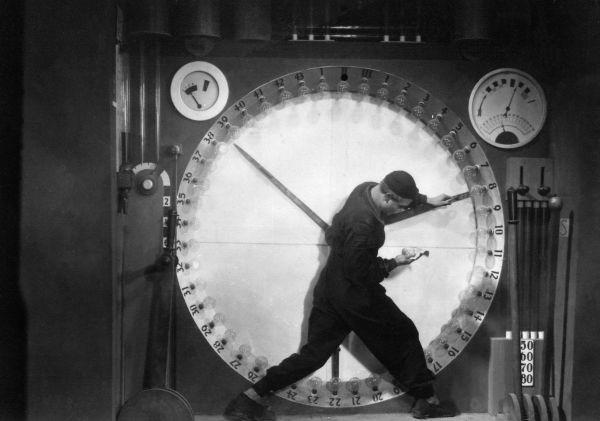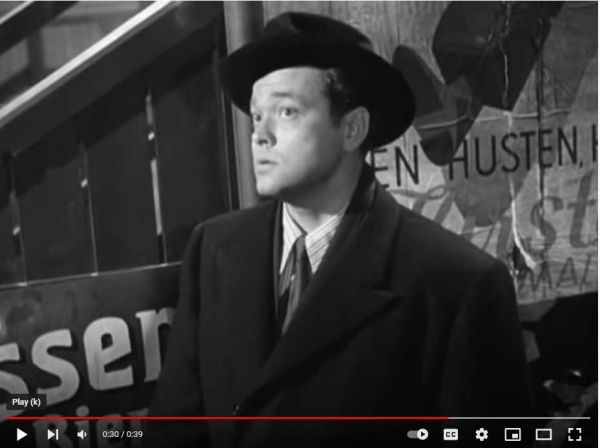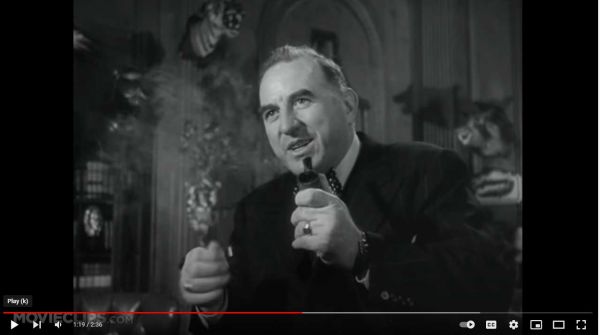The Third Man After the Fifth Reading
The Third Man after the Fifth Reading
Even after reading The Third Man so many times, I still read the author's Preface. Graham Greene writes about the origin and inspiration for his book. He prefers to call it a screen-play, rather than a novel, perhaps because Carol Reed, who directed The Third Man, collaborated so closely with Greene. The story belongs as much to him as to Greene. You seldom find a writer and a director who get along so amicably. Greene speaks in his dedication about the long days he and Reed spent, sitting in the cafes of Vienna, Austria, while they worked over the script and the filming.
That may explain why the book and the movie complement each other. To get the whole story, you have to look at both. Greene's skillful use of language lays a sort of intellectual groundwork for the plot that gives it emotional color, social organization, and an interior voice. Reed's camera-work uses a lot of contrasting light and darkness. "Where there is much light, there is also shadow," the poet Wolfgang von Goethe wrote.
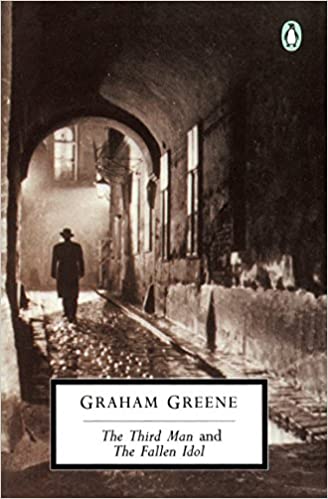
Image taken from the film version of The Third Man.
The main character Rollo Martins walks through the darkened streets of Vienna. The War has only recently ended, and street-lights remain unreliable. Martins worries that someone is following him. Finding out who that someone is takes viewers by surprise. Martins passes buildings bombed into rubble, waiting for removal. Often, nothing remains of entire street-blocks but mountains of rubble and debris. Remember that Reed and Greene developed The Third Man in 1948. It is sobering to see that three years after the War, Vienna has still not got round to rebuilding.
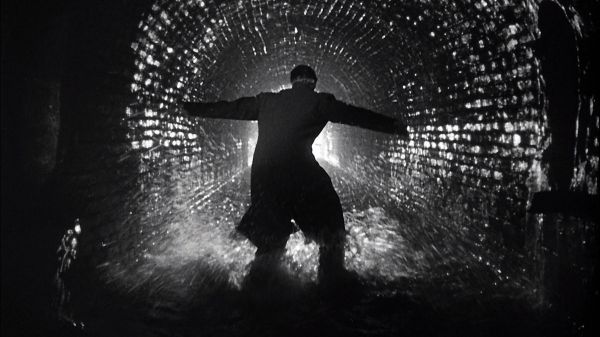
Note the parallelism of the arch photo and the sewer photo.
The Third Man features a fantastic pursuit through the sewers of Vienna. Even today, Viennese tour-guides lead tourists into the sewers to show them where the scenes of the movie take place. The photography in The Third Man will remind viewers of Expressionist German films by film-makers like Fritz Lang.
Gustav Fröhlich in Metropolis, 1927
Greene and Reed must have pondered how not to alienate an audience, since the audiences may not like the contrasting light and darkness, how light and darkness delineates things and gives them hard edges. The delineated surfaces of black-and-white beats color photography any day; but an audience might like the warmth and softer edges of color photography.
Orson Welles, who plays the villian Harry Lime in The Third Man, died in 1985. People still feel violently about the actor-director. They either loved him violently or hated his guts. For one thing--no matter the movie--Welles always plays himself. I am not criticizing. He always makes the character an aspect of himself, whether in Citizen Kane or Touch of Evil. He imbues each character with a familiarity that connects him to a viewer.
Even his worshippers fretted when Welles made a fool of himself. In The Third Man, for instance, Harry Lime, meets his former friend Rollo Martins by a huge ferris wheel. As if to justify the deaths he has caused, Lime talks about the murders and wars that plagued Italy in the 16th century. It gave birth to artists like Leonardo da Vinci and the Italian Renaissance. Switzerland, on the other hand, had peace and prosperity for four hundred years, and what did the Swiss do with all that peace and prosperity? They invented the cuckoo clock! Greene insisted that Welles ad-libbed this line. Greene apparently did not care for it.
For one thing, the Swiss didn't invent the cuckoo clock. The Germans in the Black Forest did. Welles couldn't have been more wrong. The Swiss have never manufactured cuckoo clocks. But Welles's supporters insist that Welles would only say a thing like that while in-character—as Harry Lime. It is an element of Welles's craft that people admired. People might say, "Surely that's Welles usurping his character's identity!" But Welles didn't ad-lib the cuckoo clock line. Harry Lime did.
Ed Begley in Sorry, Wrong Number
On the other hand, if someone had asked me to cast the Harry Lime character, I would have chosen a man like Ed Begley, Senior. I remember him in Sorry, Wrong Number, bossing around his son-in-law, played by Burt Lancaster, and spoiling his motherless daughter, played by Barbara Stanwyck. The role of Harry Lime calls for a cold and laconic type, which would have suited Begley. He had one other endearing quality. You know you've seen that face somewhere, maybe on the statue of an ancient gladiator, or in a police line-up? You know you've seen his face before. That's what makes Begley so good.

